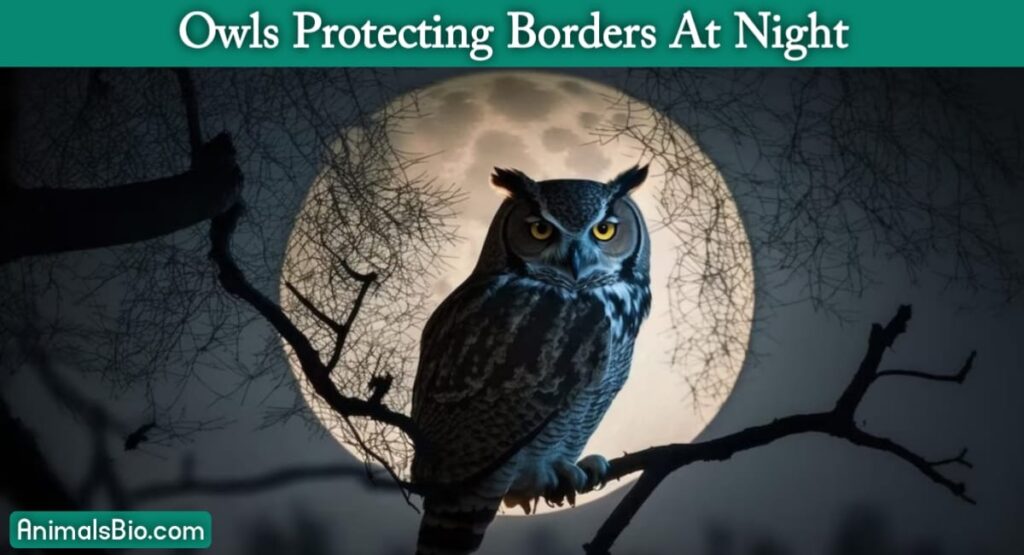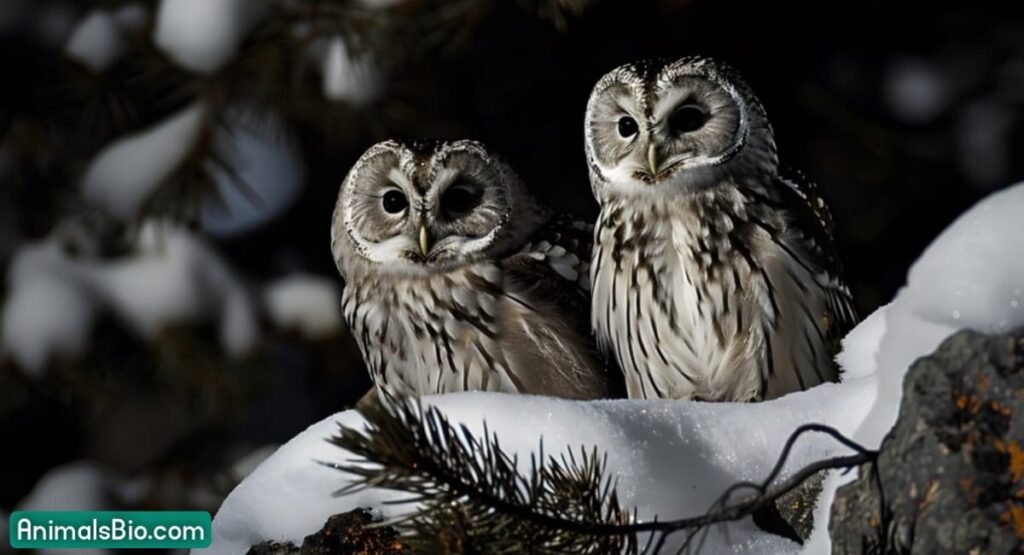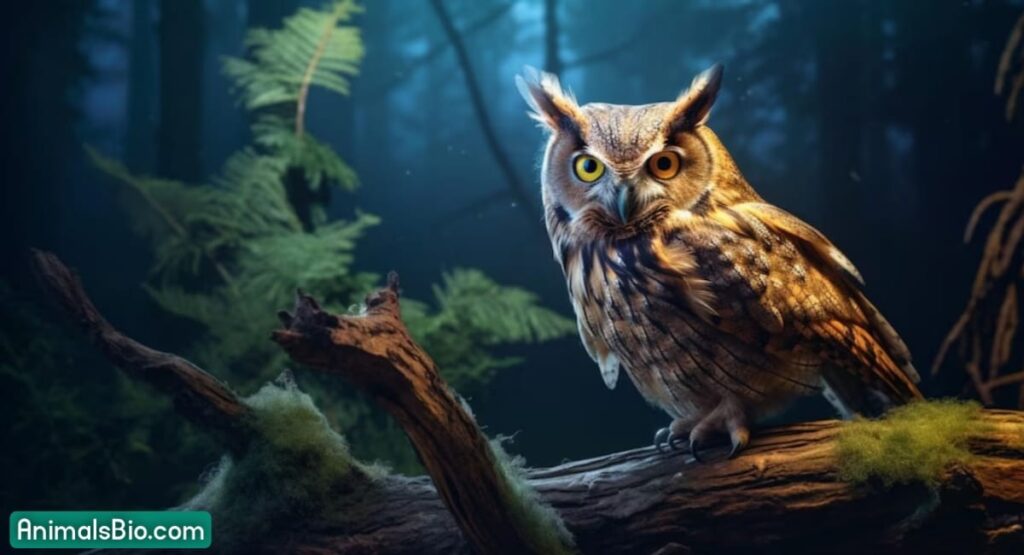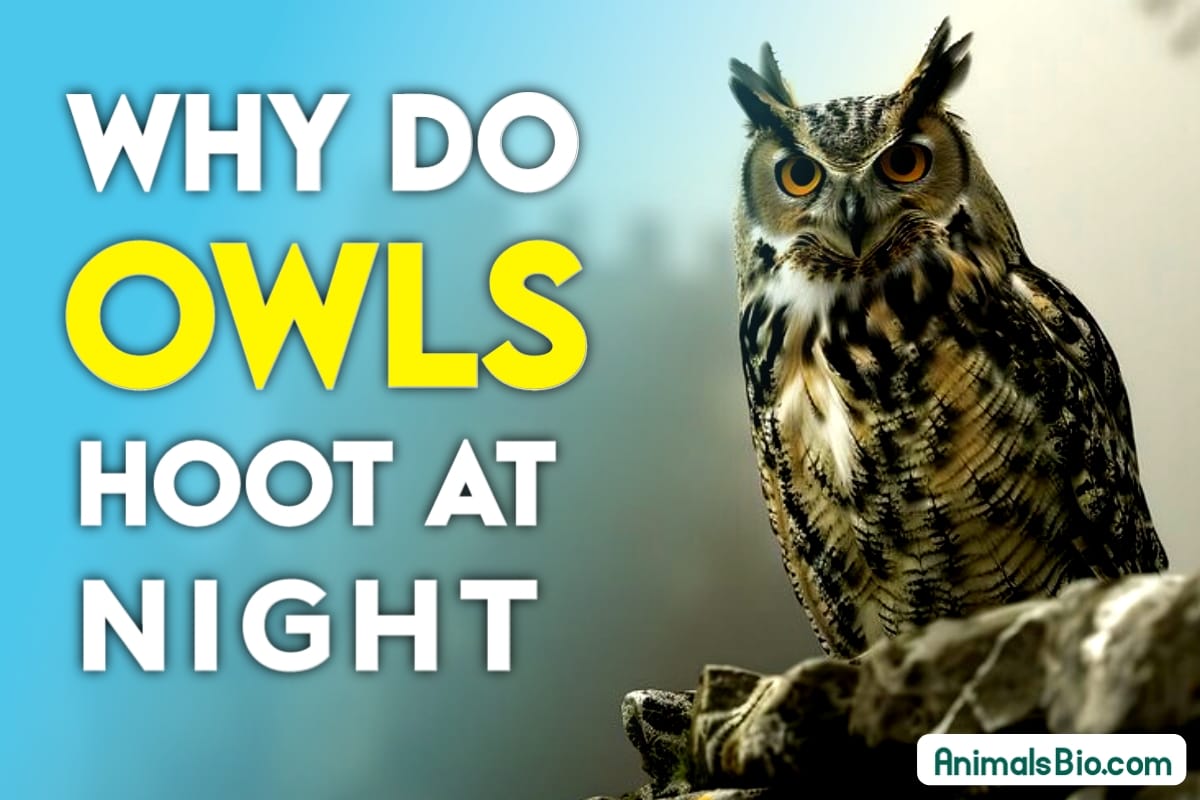In the depth of the night, as darkness envelopes the landscape, you might hear a spooky sound: the hoots of owls. These birds come out at night and have been fascinating people for a long time with their mysterious calls.
But why do owls hoot when it’s dark? What do these eerie sounds mean? Come with us as we explore the interesting world of owl talk, where their hoots tell us a lot about how they live together, find mates, and protect their homes.
Why do Owls Hoot at Night ?
Owls hoot at night for various reasons, primarily related to communication and territory defense Let’s explore the reasons behind owl hooting in simple language:
Talking to Other Owls Communication :
In the middle of owl hooting is all about talking. Owls are really good at listening and making sounds, so they use hoots to say lots of different things to other owls.
Each hoot they make sounds a bit different, with its own special pattern, pitch, and rhythm. This helps owls recognize which kind of owl is talking.
Protecting Borders at Night:

Owl hooting is really important for protecting their homes. Owls are very serious about their territories, and you can hear their hoots ringing out at night as they tell other owls to stay away.
With their hoots, they’re saying loud and clear that this is their space and they’re ready to protect it. By making these vocal warnings, they try to avoid fights and keep their territories safe and secure.
Suggested Article : Bald Eagle Lifespan – Interesting Facts
Suggested Article : Why Are Tigers Going Extinct ?
Dancing to Find a Mate: Using Hoots to Attract
In the time when owls are ready to have babies, hooting becomes really important for finding a partner. Male owls make rhythmic hoots in the dark to show they’re around and strong enough to be a good mate.
These fancy hooting shows are like a special dance for owls, where they try to impress potential partners with their beautiful hoots. Sometimes, these hooting concerts even lead to owls staying together for their whole lives.
Mating Calls: The Language of Love in the Night
As the night gets darker, owl hooting gets louder, especially during mating season. Male owls sing their hearts out with a beautiful symphony of hoots, each one filled with love and longing. These romantic calls aren’t just for attracting females
they also show how strong and healthy the male owl is. In return, female owls respond with gentle calls of their own, letting the males know they’re ready to mate and cementing the bond between them.
Family Dynamics: Hoots in the Nest

After finding a mate, owl hooting stays really important for their family. Hoots help them talk to each other and their babies during different parts of their lives.
Parents use different hoots to plan hunting trips, tell their family about danger nearby, and talk to their babies. By making these sounds, owls keep their family close and make sure their babies stay safe and grow up strong.
Night Protectors: Hooting for Safety
Besides talking and finding a mate, owl hooting is also a way for them to protect themselves. Owls are top predators at night, but they still have to watch out for other animals that might try to take over their territory.
By hooting loudly, owls show they’re in charge and scare away any animals that might want to cause trouble. This helps them stay safe and keep living in the dark without any problems.
Habitat Features: Nature’s Night Time Music
Although owl hooting is mainly for talking, the environment around them affects how often and how loud they hoot. When it’s dark, owls can move around easily and talk to each other without any problems.
But other things like how warm or wet it is, and even what phase the moon is in, can also change when and how much they hoot. All these factors together create the special sounds of the night that we hear in nature.
Overall, hooting at night is a natural behavior for owls and serves various important functions in their ecology and social interactions.
Conclusion

In the hidden realm of the night, where darkness reigns supreme, owls reign as the silent guardians of the skies. Through their haunting hoots, they weave a tapestry of communication, courtship, and defense, revealing the intricacies of their social dynamics and ecological interactions.
As we listen to the symphony of the night, let us marvel at the mysteries of owl hooting and the captivating world it unveils.
Frequently Asked Questions (FAQ)
Why do Owls Hoot at Night Spiritual Meaning ?
The spiritual significance of owl hooting at night varies across cultures. Some view it as a symbol of wisdom and intuition, while others associate it with the supernatural or the presence of spirits. Ultimately, interpretations depend on individual beliefs and cultural traditions.
How Long do Owls Live ?
Owls have varying lifespans depending on species and environmental factors. On average, smaller species like the Elf Owl may live around 3-6 years in the wild, while larger species like the Great Horned Owl can live up to 15-20 years or more. In captivity, they may live even longer, sometimes exceeding 30 years.
Do Owls Hoot During the Day ?
Yes, owls can indeed hoot during the day, although we usually think of them hooting at night. During the day, owls might hoot for the same reasons they do at night, like talking to each other, defending their territory, or finding a mate. But they don’t hoot as much during the day as they do at night.
When do Owls Hoot ?
Owls primarily hoot during the night, as they are nocturnal creatures. However, they may also hoot during the day, especially during mating season or when defending their territory. The frequency of hooting can vary depending on factors such as species, habitat, and environmental conditions.
Where do Owls Live ?
Owls are found all over the world, except for Antarctica. They live in lots of different places, like forests, grasslands, deserts, and even cities. Owls are really good at adapting to different environments, as long as there are enough places to find food and make nests.






